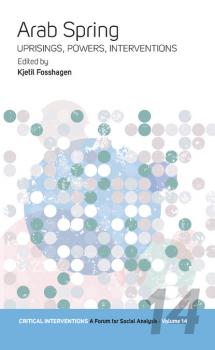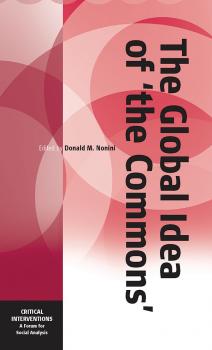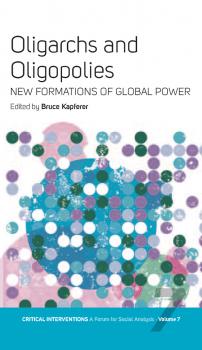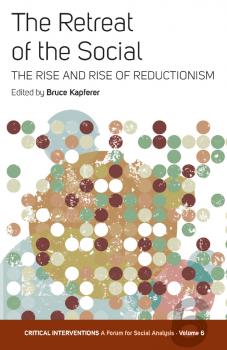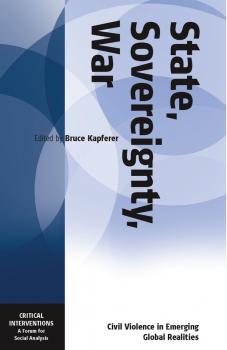Critical Interventions: A Forum for Social Analysis
Скачать книги из серии Critical Interventions: A Forum for Social AnalysisDemocracy's Paradox
Does populism indicate a radical crisis in Western democratic political systems? Is it a revolt by those who feel they have too little voice in the affairs of state or are otherwise marginalized or oppressed? Or are populist movements part of the democratic process? Bringing together different anthropological experiences of current populist movements, this volume makes a timely contribution to these questions. Contrary to more conventional interpretations of populism as crisis, the authors instead recognize populism as integral to Western democratic systems. In doing so, the volume provides an important critique that exposes the exclusionary essentialisms spread by populist rhetoric while also directing attention to local views of political accountability and historical consciousness that are key to understanding this paradox of democracy.
The Global Life of Austerity
Austerity and structural adjustment programs are just the latest forms of neoliberal policy to have a profoundly damaging impact on the targeted populations. Yet, as the contributors to this collection argue, the recent austerity-related European crisis is not a breach of erstwhile development schemes, but a continuation of economic policies. Using historical analysis and ethnographically-grounded research, this volume shows the similarities of the European conundrum with realities outside Europe, seeing austerity in a non-Eurocentric fashion. In doing so, it offers novel insights as to how economic crises are experienced at a global level.
Moral Anthropology
A development in anthropological theory, characterized as the 'moral turn', is gaining popularity and should be carefully considered. In examining the context, arguments, and discourse that surrounds this trend, this volume reconceptualizes the discipline of anthropology in a radical way. Contributions from anthropologists from around the world from different theoretical traditions and with expertise in a multiplicity of ethnographic areas makes this collection a provocative contribution to larger discussions not only in anthropology but the social sciences more broadly.
Arab Spring
The events of the Arab Spring presented a dramatic reconstitution of politics and the public sphere through their aesthetic and performative uses of public space. Mass demonstrations have become a new global political form, grounded in the localization of globalizing processes, institutions, and relationships. This volume delves beneath the seemingly chaotic nature of events to explore the structural dynamics underpinning popular resistance and their support or suppression. It moves beyond what has usually been defined as Arab Spring nations to include critical views on Bahrain, the Palestinian territories, and Turkey. The research and analysis presented explores not just the immediate protests, but also the historical realization, appropriation, and even institutionalization of these critical voices, as well as the role of international criminal law and legal exceptionalism in authorizing humanitarian interventions. Above all, it questions whether the revolutions have since been hijacked and the broad popular uprisings already overrun, suppressed, or usurped by the upper classes.
War, Technology, Anthropology
Technologies of the allied warfare in Iraq and Afghanistan, such as remote-controlled drones and night vision goggles, allow the user to “virtualize” human targets. This coincides with increased civilian casualties and a perpetuation of the very insecurity these technologies are meant to combat. This concise volume of research and reflections from different regions across Asia, the Middle East, Latin America, and Africa, observes how anthropology operates as a technology of war. It tackles recent theories of humans in society colluding with imperialist claims, including anthropologists who have become involved professionally in warfare through their knowledge of “cultures,” renamed as “human terrain systems.” The chapters link varied yet crucial domains of inquiry: from battlefields technologies, military-driven scientific policy, and economic warfare, to martyrdom cosmology shifts, media coverage of “distant” wars, and the virtualizing techniques and “war porn” soundtracks of the gaming industry.



